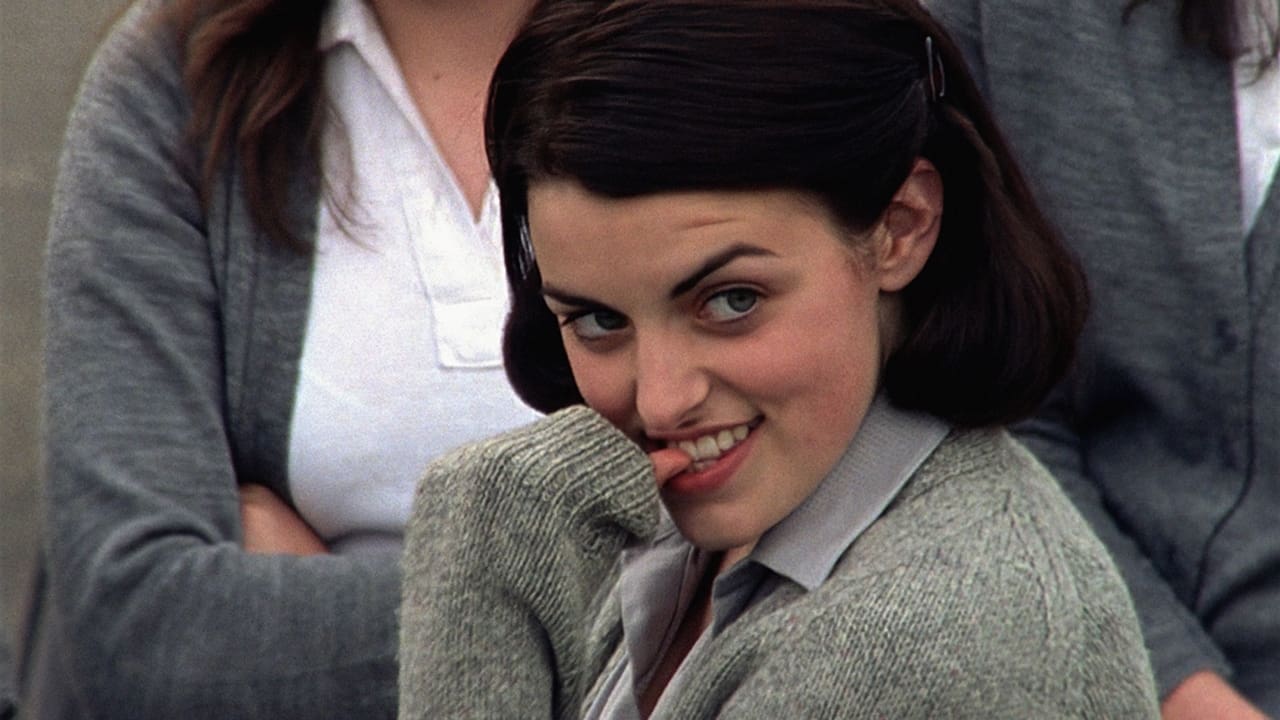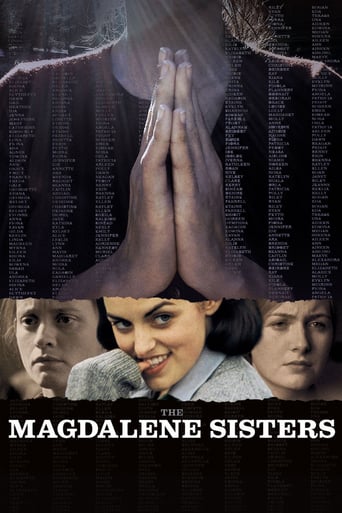

It was male sexual license which brought the Magdalene asylums into existence. They were non-denominational safe houses for prostitutes and homeless women. Later, in the mid-nineteenth century the Church, in a alliance with the State, took them over. The goals were to continue providing services to "lost women," cover the costs through the work regime, and provide a social service to the State. In this arrangement, nuns, the lowest members of the Church hierarchy, served as the front line workers, and were no more party to the shaping of the institution, and its expanded client list, than were the rescued women they served.So, there were three forces behind the Catholic Magdalene houses: the prostitute users and rapists who created the inmates, the State which hid both sexual license and its victims, and the Church which gained communal and moral sway."The Magdalene Sisters" snuffs this broader context, choosing to see the oppression and suffering through the reductive lens of personal sexual repression. The nuns are not viewed in any sense as co-victims or sisters to their charges but as authoritarian, sadistic old maids. Though they work from dawn until dusk with house, factory, and prayer work, their lives are viewed as hypertrophied. Even in their only human moment during the communal viewing of "The Bells of St. Mary," they quickly revert to their stepmother harshness. That sexual repression owns their actions, determines their person is specifically underscored in the villainous stripping game they force on the inmates, as if they were male screws in a women's prison.If one had to choose the dominant symbols of sexual repression in western culture today, nuns, priests, women, and Catholic Ireland would no doubt first come to mind. "The Magdalene Sisters" pushes all these buttons--and sparks the film with some sexual scenes and sexual fun and games to boot.The sex abusive priest exists in the same mold as the young rapist at the Catholic-ridden music event. Their acts are not so much the problem as is their sexual repression born of a puritanical Irish Catholicism. What the priest suffers for his act is a prank which divests him of layers of hypocritical clothing. The laughable strip tease is no doubt more popular and desirable to a modern audience than some "politically correct" form of public justice. But the exculpation of criminal acts is still in place, as it is in the case of that same violent rapist lad--to whom nothing at all happens.Anyway, when the girls enter the gate, we're supposed to believe that their persecution begins right then. The world they have left behind (run by and for men) goes scot free, but the world they enter, a women's world, is a prison. The Sisters of Mercy are the torturers. And Mother Superior is the unbending warden, while nuns young and old, having suppressed all kindness, understanding and intelligence, are the merciless screws. Their incarceration techniques are are so effective that the State has washed its hands of its supervisory role.The social context is replaced by the private narrative. The political is psychologized. Women are pitted against women. Freud's myth of sexual repression, so powerfully adhered to in Hollywoodland, displace sexual license, and the State's/Church's central role in protecting it.In sum, Christ, a man, can understand Mary Magdalene; the Sisters of Mercy, working in the Magdalene homes, and all women, cannot. Because they are the scapegoat.
... View MoreThe Magdalene asylum was one of the cruelest places I can imagine, the movie represents the horrible fates of three young ''sinful'' girls who did nothing wrong being punished by taking them to a seemingly normal laundry which is in fact a well oiled and approved by the general public torture house. Basicaly like prison, but you go there if you get raped and have a baby out of wedlock or flirt with boys. But the thing that differs this from prison movies is that this is way more tragical, they isolate them from their families harshly punish them for trivial reasons and ultimately drive them to insanity and suicide like in the case of Crispina. This movie being sometimes even hard to watch is a harsh reminder that were probably doing better than most of what these people been through. Think about that when your TV dies.
... View MoreAs already well noted, this is a very well crafted film that captures and portrays some of the lowest possibilities of human endeavour. The movie has it's flaws, but drawing empathy from the viewer is not one of them and this it does so well that I was emotionally exhausted by the end of it.The religious dimension of the film is an interesting one. Clearly people wanting opportunity for anti-Catholic or anti-religious diatribe would find plenty of fuel here, but I think the more reasonable viewer (religious or not) would see the issues raised for what they are - a perversion and distortion of Christian faith perpetuated and maintained by flawed institutional systems. In this vein, it's not necessarily an anti-religious film and not even anti-establishment as such, but it does show a terrible side of those things and, moreover, illustrate how human beings can take any ideology, belief system etc. and turn it to meet their own personal sadistic and evil ends.A sad and horrible film and one that reminds us all of what not do to, how not to treat people and how we should be ever vigilant as a society against evil and cruelty no matter the guise it takes.
... View MoreThroughout the nineteen fifties and sixties, there were hundreds of institutions throughout America, England and Ireland which indicated centers dedicated to the Christian God. A significant number of these places were later revealed to have been of sanctuaries of corruption and pain. This movie selects one called " The Magdalene Sisters. " Although set in Irland, there are hundreds throughout the world which were run the same way and by the same religious orders. The story originates with writer/Director Peter Mullan who was inspired by a true incident which took place in such an establishment. Four Irish girls are sent to the isolated asylum run by the Magdalene sisters. There they undergo such brutal treatment, ridicule and torturous punishment as a means to curb their unsocial behavior, such as 'looking too pretty.' There is Margaret (Anne Duff) Crispina (Eileen Walsh) Rose (Dorothy Duffy) and Bernaddette (Nora-Jane Noon). All the young girls are constantly mistreated like hapless slaves as they are systematically dehumanized, forced to wash, clean, scrub floors, clothes and endure physical, mental and sexual anguish. Each day, they accept their suffering and silent plight, dreaming of eventual escape. Watching this movie is difficult, but having been exposed to the same brutality, believable in every respect. ****
... View More